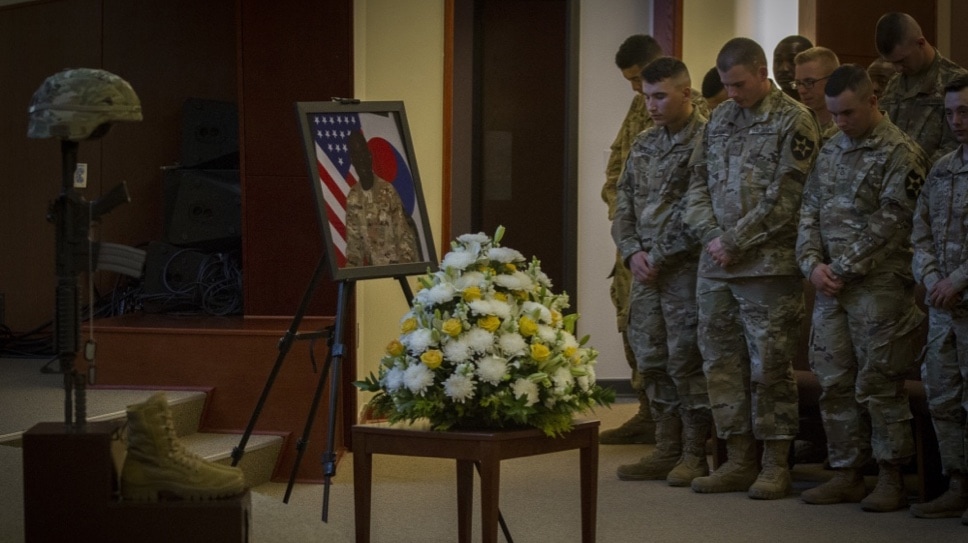The experience of grief and loss for veterans can weigh heavy on their hearts and minds. Even after they return to civilian life after active duty, they may wrestle with how to handle this loss. Reactions to loss vary from person to person. When a veteran is dealing with compounding losses, trauma, and painful experiences it can be hard to cope without some strategies.
Grief can occur after death, injury, witnessing traumatic events, transition challenges at home, change of rank in the military, or even addiction and mental health issues which change how they live in the world. Knowing how the impact affects veterans can help families and loved ones support them in learning to thrive.
Why Veterans Grieve
Veterans experience different kinds of losses during their time as military servicemen and women. Quite often these losses pile up over the period of time they serve and many serve in wars, which only compounds the losses even further. How they express the grief can come out in many ways, quite often in addictive behaviors, anger, loss of sleep, and other ways the body tries to process or handle the stressors and grief after the fact.
Some of the main reasons veterans may deal with grief is the loss of a comrade who died, survivor’s guilt, the transition from active duty to civilian life, physical disability, and mental health challenges. These can follow a veteran their whole lives. Without seeking proper treatment or support they may not get the help they need.
How Emotions Are Expressed
When a veteran expresses their grief, it can come out in all kinds of ways. It is important for family and loved ones to know how these emotions are expressed. If these show up it may be time to sit down with a beloved veteran and see how a family can rally support for their healing:
Stomach pains, insomnia, fatigue, panic attacks, and more
Anxiety, confusion, depression, anger, detachment from loved ones
Crying, staring, loss of interest, poor focus, and worrying about their health
Spirituality including anger at higher power, losing faith, thinking more philosophically or metaphorically about life
Process of Grief
A person’s feelings can come and go. When feelings of relief happen, it can feel like a weight is lifted off that person in that time period. However, the process of grieving is not linear. Sometimes a person gets stuck in one place or reverts back to another place for a time. It may be hard to accept a loss and understand it is real.
This is especially true for a person that loses physical abilities or mentally struggles with PTSD, depression, and more. To come to terms with the loss can feel greater than just sitting in it, but the process of grief can be helpful by allowing those feelings to transfigure into something greater: hope.
Self-Care Tips
Companions of veterans who are struggling often deal with the issues alongside their loved ones. Self-care is key for them as well as the veteran. Perhaps they are grieving their losses separately but also together because they have been through it together. Each person has their own journey with grief. In recovery from addiction, it is important to look at how to tend to one’s soul, physical self, and emotional well-being to maintain a holistic portrait of healing.
It’s Okay to Grieve
It may not feel that way at first, but it is healthy and okay to grieve. Emotions come and go but it is part of the healing process. If a veteran cannot feel their feelings, they will try to numb them with something else. Recovery is about learning how to stop numbing out and begin to feel the expression of emotions, as wide-ranging as they may be.
Talk it Out
Veterans and families may not like to talk about what they experience due to stigma or other issues. People may not know what they’re going through. It helps to talk to people they trust and let them know how to be supportive. It helps to find someone to listen to and let them know how to lend support. Talk therapy helps but also meeting others who shared the experience together or who understand what it feels like can help veterans process their feelings.
Exercise and Nutrition
Two components of healthy recovery for veterans include exercise and nutrition. They should learn to eat better and get some form of exercise, even if it is yoga, to help combat the challenges they face. Healthy food helps veterans keep a clear mind when working through the difficulties they face day-to-day. With all that is moving in their inner world, it helps to have food that is nourishing and healthy for them to feel their best while coping with life’s challenges.
Keep Busy
Veterans that work hard at staying busy are less likely to “get in their heads.” Being isolated and alone is the worst thing for veterans because they are more likely to return to looping thoughts and challenging spaces in their minds. When they can write, do art, find hobbies, and explore things with family and friends they are more likely to feel at ease.
Support Loved Ones
Family, friends, and comrades can offer a healing touch to veterans who are struggling with feeling healthy. The more veterans can lean on their support network, the better they will feel while moving forward in recovery.
Forge is a place to come and recover your life from addiction. We help you reimagine what is possible and create the life you’ve been dreaming of.
Call us today: 1-888-224-7312



